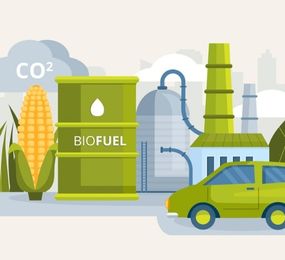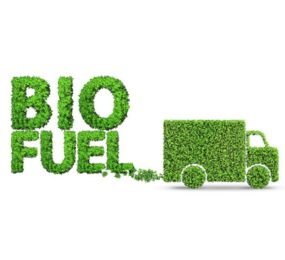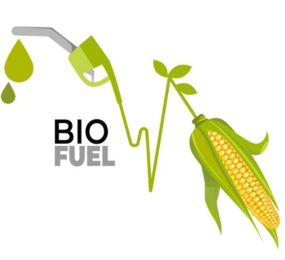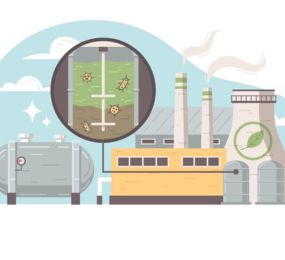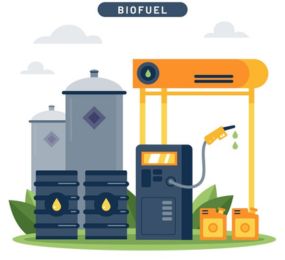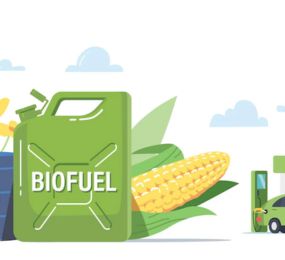With the world seeking to adopt sustainable technology, biofuels appear like a lighthouse on a sea of energy prospect. The energy quest which has made biofuels very popular now as the alternative clean energy they are offering seems promising to the global move away from fossil fuels and to the challenge of climate change. Biofuel's story is not only about energy, but about how technology innovation and human ambition aimed at achieving a green future will collaborate to create a better world. One of the most interesting aspects of the bio oil trends is how those stakeholders and experts are watching the changing dynamics of the biofuel industry, where anticipation is meeting the action of forming the energy paradigm for tomorrow.
Main statistics that are setting off the future
Information services by Markets Reports World contend that the biofuels market is on progressive trend, likely to expand at 5.8% CAGR up to 2025. This widening accompanies big regulations generally worldwide. The EU, as well as US, Brazil and China are governmental organizations that have implemented biofuels quotas more (International Renewable Energy Agency). Coinciding with that, it is obvious that sustainability sparked the interest in biofuels that help reduce global warming gasses by 85% compared to the common fossil fuels (European Commission).
Also, the ratio of advanced biofuels growth has been projected to be 7% more, as evident in the fast growth rate in this sector fueled by innovations (World Economic Forum). The Asia-Pacific region comes first as the area that has experienced an increase in biofuel production investment. This reflects a dynamic that goes beyond the regional scope and implies a global dimension. (Grand View Research).
Addressing the FAQs of the Industry
Feedstock Availability
A critical parameter that biofuel sustainability depends on is feedstock availability and it is being examined closely. The success in developing methods for diversification and permanent assurance of sustainable feedstocks gives more safety and helps stabilize ecosystems.
Market Growth Factors
Innovation, regulatory support, and market demand is therefore an attributor of industry growth. The industry will be able to achieve this only if the combination of these components is in harmony that will prop up the adoption and market penetration of E-mobility.
Regulatory Compliance
Overcoming the complexity of the existing regulatory environment of the biofuel is the major challenge producers face. Nevertheless, the policy environment can, on the one hand, serve as a limitation, while on the other hand, it can open the space for new innovations and growth opportunities.
Frequently Asked Questions (FAQs)
Q. What Are Biofuels?
The renewable biofuels are the fuels obtained either directly or indirectly from the organic material, biomass which can comprehend plant elements as well as animal excreta. They are considered as “renewable” energy sources that may replace carbon intensive fossil fuels with this, they can help to cut down greenhouse gas emissions.
Q. What Positive Impact Does The Use of Biofuels Have on Climate Change?
Moreover, biofuels are becoming the guarantor of greenhouse gas reduction due to offset of the carbon dioxide, released from burning these fuels, by the plants used to produce biofuels. This kind of a cycle is aimed at reducing the carbon turnout from transportation and energy production sectors, thus a lower overall carbon footprint.
Q. Which Biomass Fuels Are Used Most Widely Nowadays?
Among the biofuels used most often today are ethanol and biodiesel. The main ethanol source is corn and sugarcane which are utilized in gasoline as an additive to achieve higher octane and cleaner emissions. Biodiesel, made of vegetable oils, animal fats and greases, can replace or blend with diesel in this regard.
Q. Do We Have Any Risk Related to Developing Biofuels?
So, of course, there are some real threats in biofuel production as well. The backlash could be higher prices of food that are caused by crops grown for fuel and production of energy instead of food, deforestation, and loss of biodiversity that make room for biofuel production. Furthermore, the issue of the sustainability of some biofuel production processes is being raised, especially those requiring high amounts of water, fertilizer, and other energy sources.
Q. What is the Regulation in the Biologic Industry?
The biofuel sector is supervised by a range of multilateral, national and municipal regulations that focus on cutting carbon emissions and utilization of renewable energy sources. These policies include renewable fuel production requirements and application, feedstock subsidies for biofuel production, and rules to guarantee the biofuel's sustainability.
Q. What does the future of biofuels look like?
The outlook of future biofuels looks hopeful, as adoptions of new technologies have made proper utilization more simple and less adverse to the climate. It is anticipated that the technology for nextgen biofuels, including cellulosic ethanol and algae derived fuel, will be developed to diminish the environmental impacts further and make the fuels more economically profitable. Furthermore, more and more countries require cleaner energy sources in general which may fuel a biofuel business expansion.
Transformative Case Studies
The landscape of biofuels is dotted with success stories that inspire and illustrate the tangible progress within the sector:The landscape of biofuels is dotted with success stories that inspire and illustrate the tangible progress within the sector:
The production gain in European biofuel plants by combining different feedstock sources and using unique approaches suggest how feedstock variety is the secret to the success story.
The US biofuel company's market expansion, owing to renewable fuel standards, reflects the extended policy's influence on growth.
Brazilian biofuel producer and automaker joint effort in a new biofuel blend reveals the importance of joining hands in developing new discoveries.
A new production cost example of Pacific-Asian companies, because of the brilliant minds of our scientists and engineers, can help us understand the truth of the idea: "innovation correlates with development".
Insights for Industry Experts
Such trends and narratives are the key in the generic perspective in the future of biofuels. The adoption of emerging sustainability goals, technological advancements, and regulatory landscape will dominate the path of the biofuel industry. Leadership and revolutionary people in energy now stand at the climax, with a chance to influence energy patterns and environmental goals very much.
For experts who wish to stay abreast with developments in the industry, aligning themselves with knowledgeable partners will become a significant requirement. Leadvent possesses a peerless skill base and a wide range of consulting services that help biofuel industry industry pioneers to thrive. Our range of services taking into account market trends, regulation changes, and investment opportunities, gives our clients a chance to be ahead of the curve and lead/innovate in the ever-changing energy industry.
The unanimous goal of all is for a sustainable energy future. It is a bumpy path, which, full of landmarks of innovation, policy improvements and collective efforts, will finally change the definition of biofuels. For those who are eager to join this exciting arena, now is the moment to observe, engage, and to promote the changes that will generate the vision of tomorrow's world.



